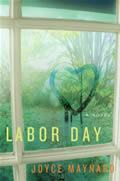
When I teach writing, I always tell my students, "Write about what you know, but also about what you want to find out." When you do your job right — and maybe there's a little luck thrown in — something else may happen in the process, too. In much the way that studying a photograph of one's own naked body (oh, God!) may reveal what the mirror does not, I have discovered that it was often the act of reading my own words about an experience that revealed to me truths about my life I'd never grasped before.
This can be thrilling. It can also break your heart, or come close anyway. This is the story of one such moment in my life, and the place it happened was Portland, Oregon.
I was 32 years old, married for nine years, and the mother of three children — a girl and two boys, ages seven, three, and not quite one year old. Ever since the week my youngest child, Willy, was born, I'd been writing a newspaper column called "Domestic Affairs" — stories about experiences as a wife and mother, married to an artist, living in an old farmhouse at the end of a dead end road in my home state of New Hampshire.
Although the column was less than a year old at that point, I had already observed an interesting phenomenon as I read the letters that arrived in our red mailbox every day. Though "Domestic Affairs" ran in close to fifty papers around the country, for some reason, a surprising number of these letters originated from one place: Oregon, from readers who had gotten to know me and my family on the pages of the Portland Oregonian.
At the time, I'd never set foot in the state of Oregon, and didn't know a soul who lived there. But poring over those letters from people who read the column (women mostly, but sometimes men, too, including some who weren't even parents themselves), I got the feeling I had friends in this place three thousand miles away. Some of the writers of these letters sent me pictures of themselves and their children; many spoke about turning to my column before everything else in the paper on Saturday mornings, and finding, when they did, a connection between the life I was living on my side of the country, and their own.
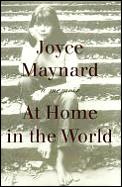 "I have my coffee with you every Saturday," they'd tell me.
"I have my coffee with you every Saturday," they'd tell me.
"When I read about how you tore your house apart looking for that lost Barbie shoe, I thought I was reading about myself."
"If you lived here in Portland," a woman wrote, "you'd be my best friend."
"You could be my sister."
These letters became enormously important to me. Living what was frequently an isolated life with my children in the country, with a husband who kept to himself a lot, I found myself looking forward to the hour the mail was delivered at the end of our road, waiting to hear what my friends in Oregon had to say. Sometimes I'd tromp through deep snow just to get to the mailbox.
Very likely, when the Oregonian signed on to run my column, what they were expecting were cute, funny stories about family hijinks — car pools and T-ball games, birthday party disasters and comical misunderstandings with a spouse. Perhaps at one point I even thought that those were the kinds of stories I'd be telling.
But as I got deeper into my assignment of chronicling the life of our little family, a more complicated saga began to unfold — of a mother who, like the ones who read my words every week, would have died for her children, but sometimes also felt as if the cost of motherhood was nothing less than her own identity. Of two very different types of people — my husband and me — who struggled to make a life together. Of how it can be that the same people who give you so much joy — people you love more than anything else in the world, your children — can at times leave you feeling so much despair.
÷ ÷ ÷
My reader friends understood all of this. They knew I loved being a mother; that it was my favorite thing I ever did. But my reader friends also understood that sometimes there was nothing I wanted more than to get away from everyone, even my husband and children.
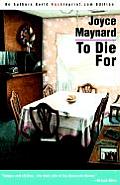 I wrote about that part of family life. I wrote about my near-obsessive efforts to make a perfect family Christmas, culminating in the moment when (observing my husband on the couch, watching a ball game, while I cleaned up our meal and fed the baby) I had taken the Buche de Noel I'd spent all that day preparing and stuffed it down the garbage disposal. Also about a time I bought an expensive oriental rug we couldn't afford — on a whim — and how my angry husband insisted I bring it back to the store. I wrote about a night I got locked out of my car in a parking lot when the temperature was ten degrees, and the small but significant fact that in the three hours I spent there with the handsome and kind man who helped me solve the problem, I neglected to mention that I was married.
I wrote about that part of family life. I wrote about my near-obsessive efforts to make a perfect family Christmas, culminating in the moment when (observing my husband on the couch, watching a ball game, while I cleaned up our meal and fed the baby) I had taken the Buche de Noel I'd spent all that day preparing and stuffed it down the garbage disposal. Also about a time I bought an expensive oriental rug we couldn't afford — on a whim — and how my angry husband insisted I bring it back to the store. I wrote about a night I got locked out of my car in a parking lot when the temperature was ten degrees, and the small but significant fact that in the three hours I spent there with the handsome and kind man who helped me solve the problem, I neglected to mention that I was married.
The strange thing was, these were stories I didn't reveal to my friends at home — the women who did, in fact, live down the road from me, the ones with whom I actually did share coffee now and then, or could have easily enough. But I published my stories in the newspaper, and when I did, it was those other friends — the ones known only to me from their letters in my mailbox — who wrote to me and said they had sometimes done those things too, or others, not so different, or felt that way, or at least they understood. And for some reason I never fully understood, a surprising number of these letters came from Portland.
In the years that followed, I was invited to speak in Oregon on more than one occasion and traveled around the state — to Bend, Astoria, Nehalem, Cannon Beach, Springfield — staying at the homes of readers I met through their letters. One talk I gave in Portland was even recorded for the state's public television station. Another time, I was scheduled to give a speech at some large venue, except — I shiver now, looking back on this — I had a fight with my husband so painful and bitter I cancelled the trip.
Looking back now on the confused young woman I must have been then to have done such a thing (something I'd never allow to happen today), I realize I must have been experiencing the deepest form of pain at the same time that I was telling the story of our family every week (a job I loved, but also one that represented our sole source of income for all the while my marriage was unraveling.) But I didn't acknowledge that part to myself. Or, I thought, to anyone in my life.
One day, a surprising thing happened. The Oregonian ran a column on its Op Ed page in which a local television commentator, who evidently read "Domestic Affairs", offered up her assessment of my marriage. There it was, in the bold headline typeface, even: "Joyce's Marriage is In Trouble." Or words to that effect.
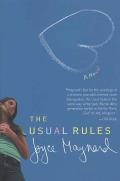 I had never met this woman. She knew me only from my weekly newspaper columns. And yet she knew something about my life that I had failed to admit to myself.
I had never met this woman. She knew me only from my weekly newspaper columns. And yet she knew something about my life that I had failed to admit to myself.
Another couple of years passed before the Saturday morning in the fall of 1989 — my children now aged 5, 7, and 11 — that readers of "Domestic Affairs" opened their papers to read that my husband and I were parting. Within days my mailbox was filled with more letters than I'd ever received.
"I was on the bus going to work when I read the news," one woman wrote. "And I burst into tears."
"I always thought your marriage was so much like mine," another told me in her letter. "I took comfort from the fact that you and your husband stayed together. Now I feel lost."
Some readers were simply upset. Many were angry. Reading their words, I felt a deep sorrow at having let them down. I hadn't been able to give the story the happy ending my readers wanted.
I kept writing the column for another year or so after that, and — released as I was now from any possibility of pretending (least of all to myself) that my marriage was alright — I think I wrote some of my best and most honest work during that final year. But I also realized, as my husband and I entered into our long and increasingly bitter divorce, and all the sorrow that came along with it, that the time had come to step away from the column and give my family a chance to live our lives without me publicly sharing our lives week after week in the pages of the newspaper.
I wrote a novel then — To Die for — and another after that, Where Love Goes, about a divorced woman living in a small New Hampshire town with her children. This woman bore more than a passing resemblance to me, but the fact that it was a work of fiction allowed us all a measure of protection in some ways that the columns never did.
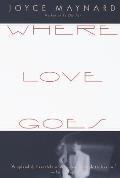 Eventually I returned to telling stories of my life, too. I published a memoir — highly controversial at the time — in which I talked about many things that had happened in my life that some people felt I should have kept to myself.
Eventually I returned to telling stories of my life, too. I published a memoir — highly controversial at the time — in which I talked about many things that had happened in my life that some people felt I should have kept to myself.
One day I got a letter from a woman in Oregon. "How did you know your marriage was over?" she wrote, explaining that she was struggling with this question in her own life.
I couldn't have anticipated what I said to her then, but the words came with surprising swiftness and clarity.
"I read my own stories in the newspaper," I wrote back.
÷ ÷ ÷
All this happened long ago. Twenty years have passed since I left that old farmhouse at the end of the dead end road, with the red mailbox my children and I used to walk to every day to pick up the latest batch of letters from friends I'd never met. The children who used to skip alongside me on those walks are grown up now and living interesting lives on their own — one a hip-hop performer who also works with disadvantaged children, writing music; one an actor and writer; one a counselor.
As for me, though I will always tell stories from my life, I have found myself more and more inclined to write fiction in recent years — but the stories I tell come from feelings and experience I've lived through in one way or another. And though I am not Adele — the fragile, damaged woman at the center of my new novel, Labor Day, a woman for whom life has become so painful that just leaving her house is sometimes more than she can manage — in certain ways, her story allowed me to explore aspects of my own. Like Adele, I felt the loneliness and longings of a single mother, raising a child on her own. And although I had more than one child, I am sure that, like Adele's son Henry, my sons and daughter sometimes felt the too-heavy burden of responsibility for a parent.
I don't want to give away the ending of Labor Day. So I'll just say that I believe in the power of love, and I wanted to give my readers a hopeful story. When you read the novel, I hope you'll feel I've done that.
And one more thing. After many years, I get to return to Portland, and to Powell's — the place I first got to actually meet (and even have coffee with) so many of those men and women I'd come to know through their letters. When I return in October, I'm hoping I'll see some of those people again. They will feel like old and treasured friends.